A refugee’ s life in Uganda’s settlements
2 May 2017
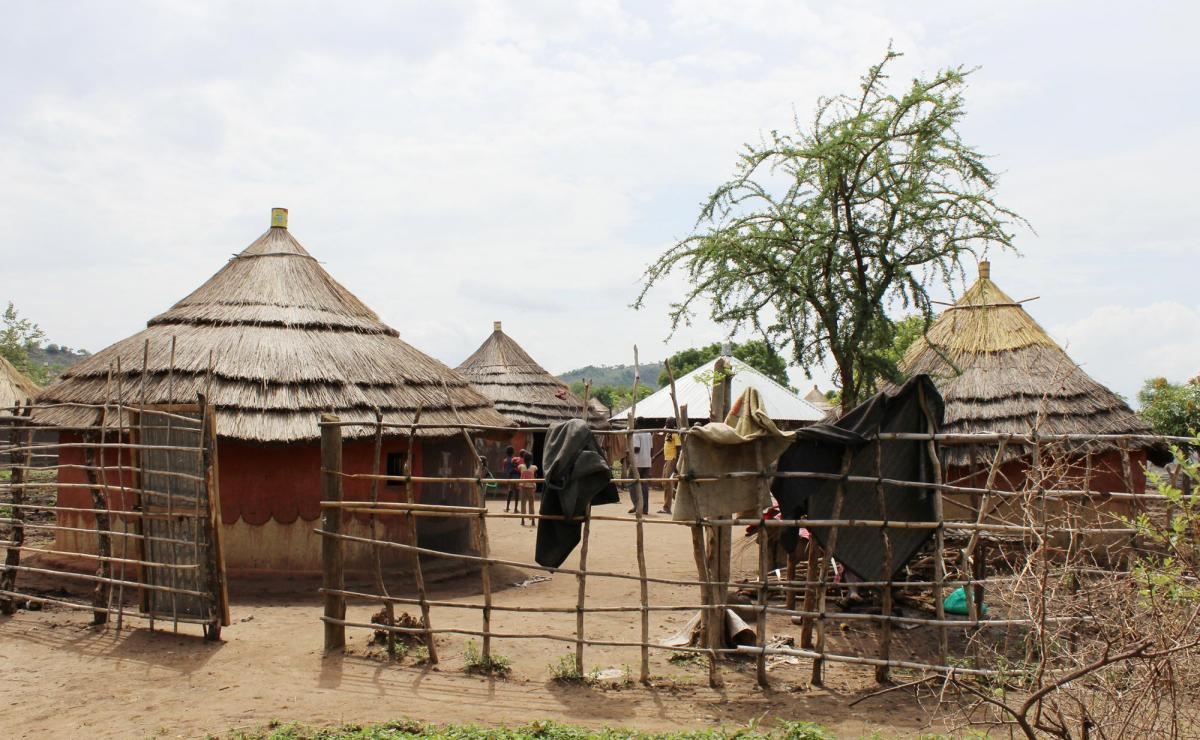
A homestead in Nyumanzi settlement, northern Uganda.
Received by the Office of the Prime Minister, refugees get a 30x30 metres plot of land from the same office. Refugees are also supported by humanitarian organizations like The Lutheran World Federation (LWF) with core relief items, food, shelter construction kits, water and sanitary facilities, medical supplies, livelihood start-up kits among others to improve their social welfare.
For most, this is the beginning of a new life. They build permanent round huts for shelter, knowing they cannot go back home anytime soon. This photo essay describes the steps of life for a refugee in Uganda's settlements.
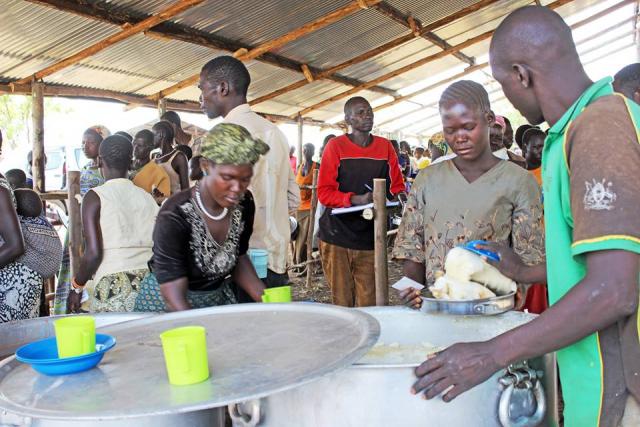
On arrival to the collection and reception centres, refugees receive at least two hot meals a day from humanitarian organizations, with LWF at the fore front. When settled on their plots, each refugee receives a monthly food ratio comprising of 12 kilograms of food grains and 3 kilograms of beans.
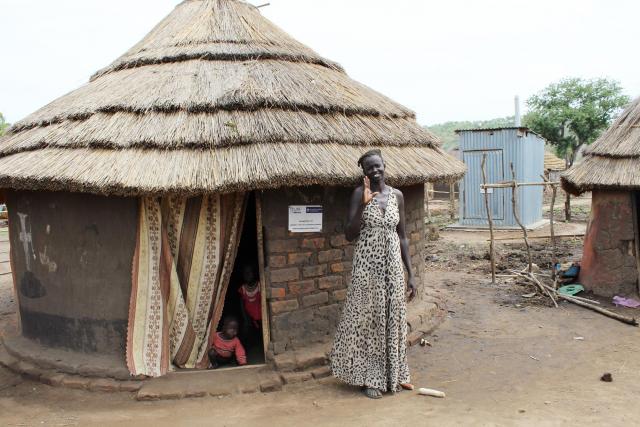
While many receive shelter construction kits consisting of tarpaulins, ropes, axes, spades and many more, people with special needs like the elderly, individual children, those with physical and mental disabilities get built huts and latrines. These are constructed by LWF with support from donor organizations and governments like the Government of Canada through the Global Affairs Canada (GAC) and the Canadian Lutheran World Relief (CLWR) as well as the ACTAlliance member organizations, among others.
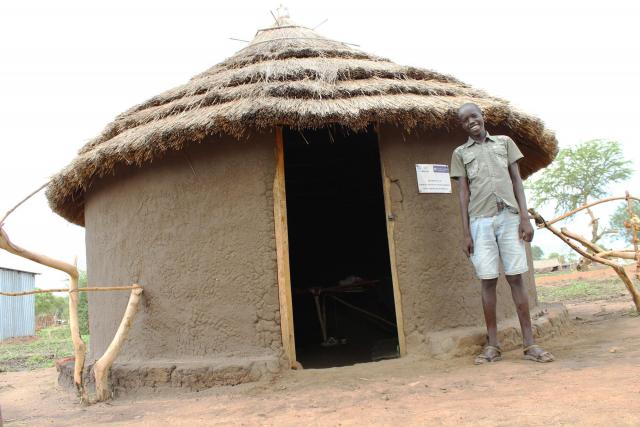
Deng Garang is a hut beneficiary in Nyumanzi settlement. He was supported by LWF through the Water and Sanitary facilities, Non Food Items, Livelihoods and Shelter Support for South Sudanese Refugees and Host Communities' project funded by GAC through CLWR.
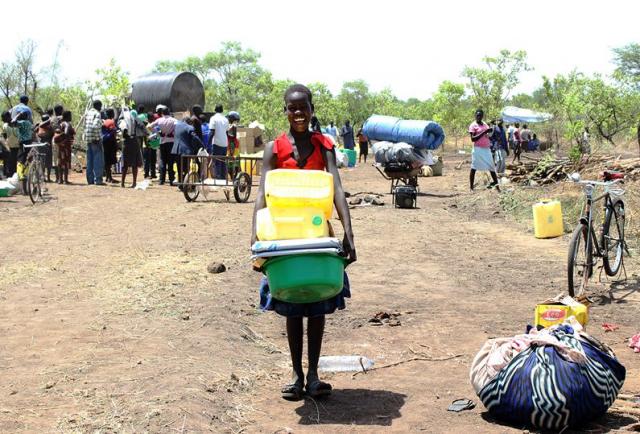
Each refugee receives core and non food items like jerry cans, utensils, blankets, a kitchen set, a mat among others from humanitarian organizations like LWF and UNHCR. This is to facilitate a decent welfare for them while in the settlements.
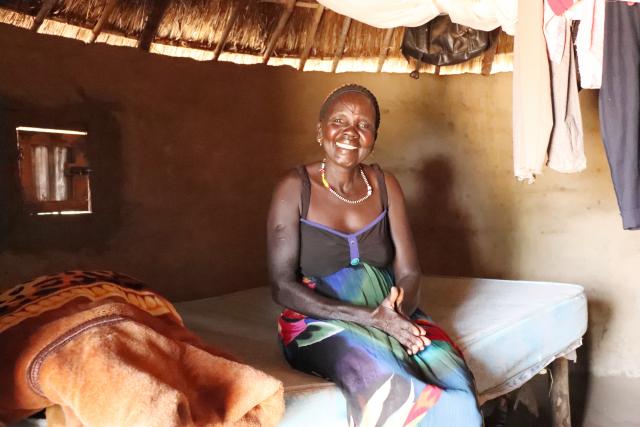
People with special needs like the elderly, individual children and care takers are prioritized during the distribution of non food items like blankets and mattresses. Yar Mabei Ajok is one of the non food items' beneficiaries who received a blanket and a mattress among other items from the Water and Sanitary facilities, Non Food Items, Livelihoods and Shelter Support for South Sudanese Refugees and Host Communities' project by LWF with funding from GAC through CLWR in Nyumanzi settlement project implemented by LWF with support from CLWR in Nyumanzi settlement.
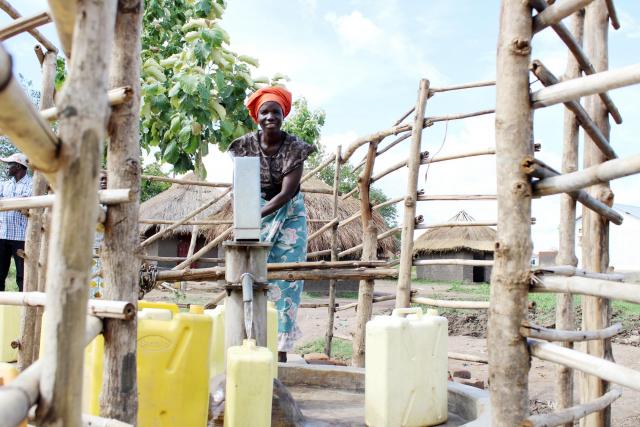
Water is a basic need for life. It is also used to improve sanitation and hygiene in communities. Refugees get access to clean water from boreholes, water trucks and motorized boreholes.
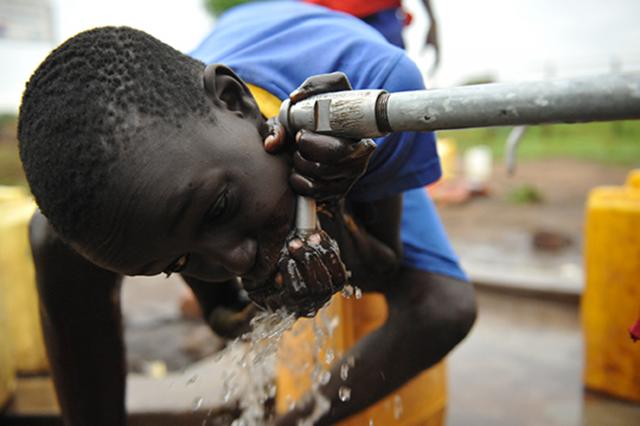
A child enjoys clean water extended by LWF.
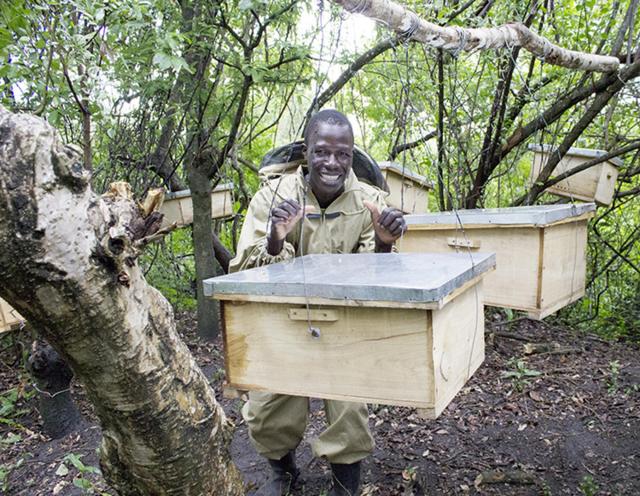
On settling, refugees are financially empowered through business skills' training, start-up-kits and cash grants for business capital. From the businesses, they earn a living to supplement the assistance they get from humanitarian organizations. Refugees engage in various businesses from farming, soap making to honey bee farming, crafts making and retail shops among others.
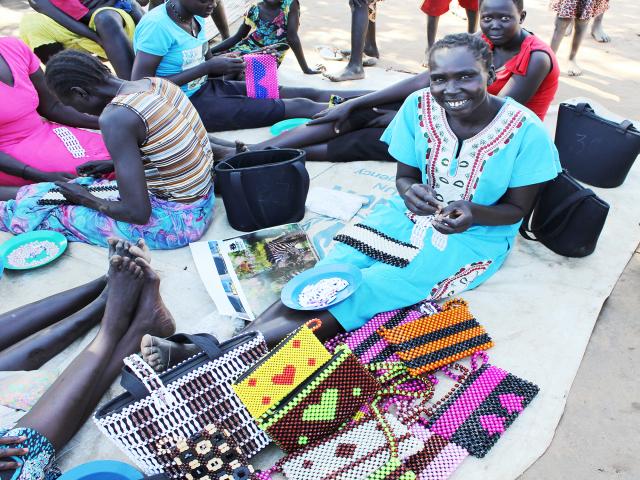
Yar Bior, a South Sudanese refugee crafts beaded bags for a living in Nyumanzi settlement.

A group of youth make liquid soap for a living. They are supported by LWF with funding from GAC through CLWR.

